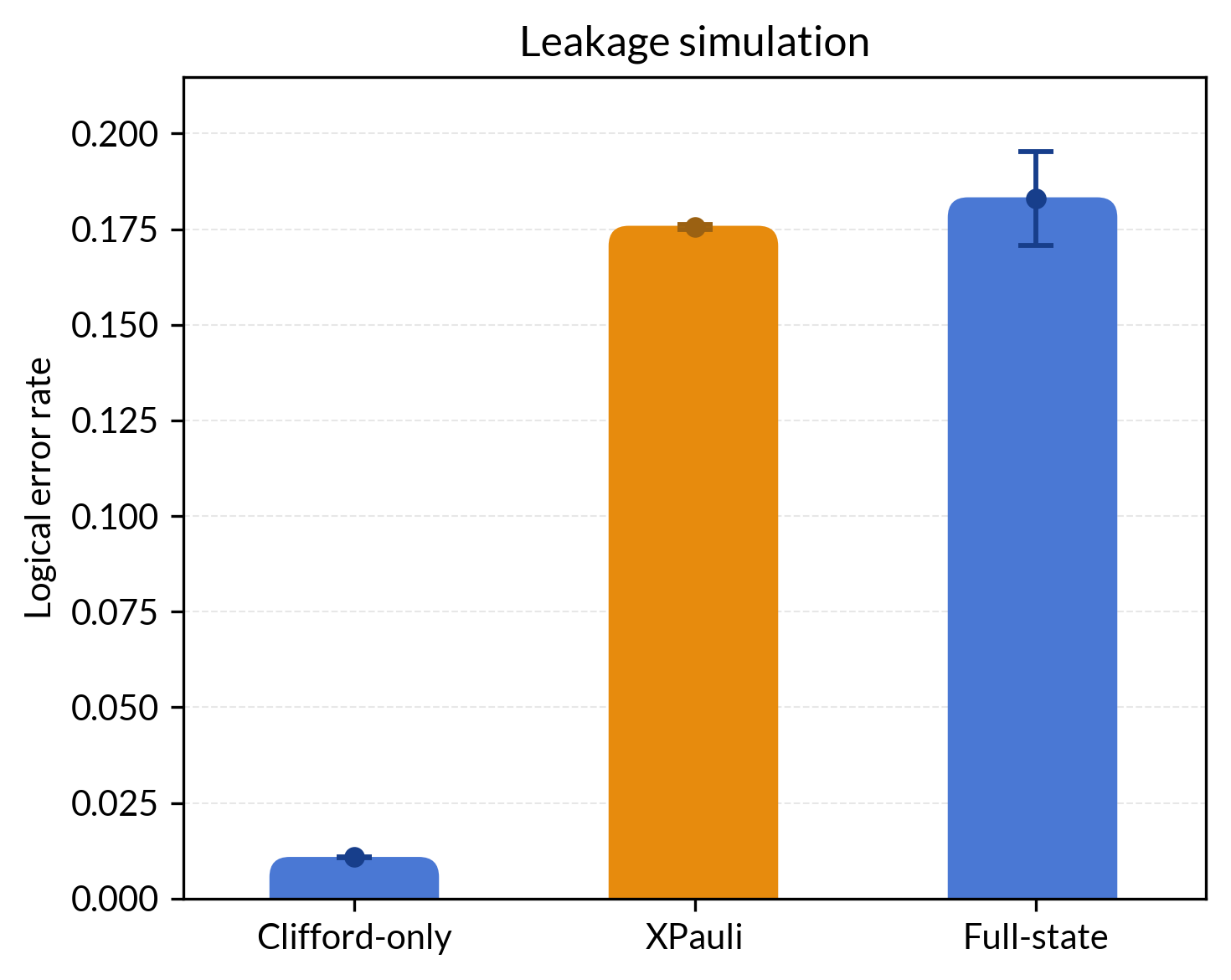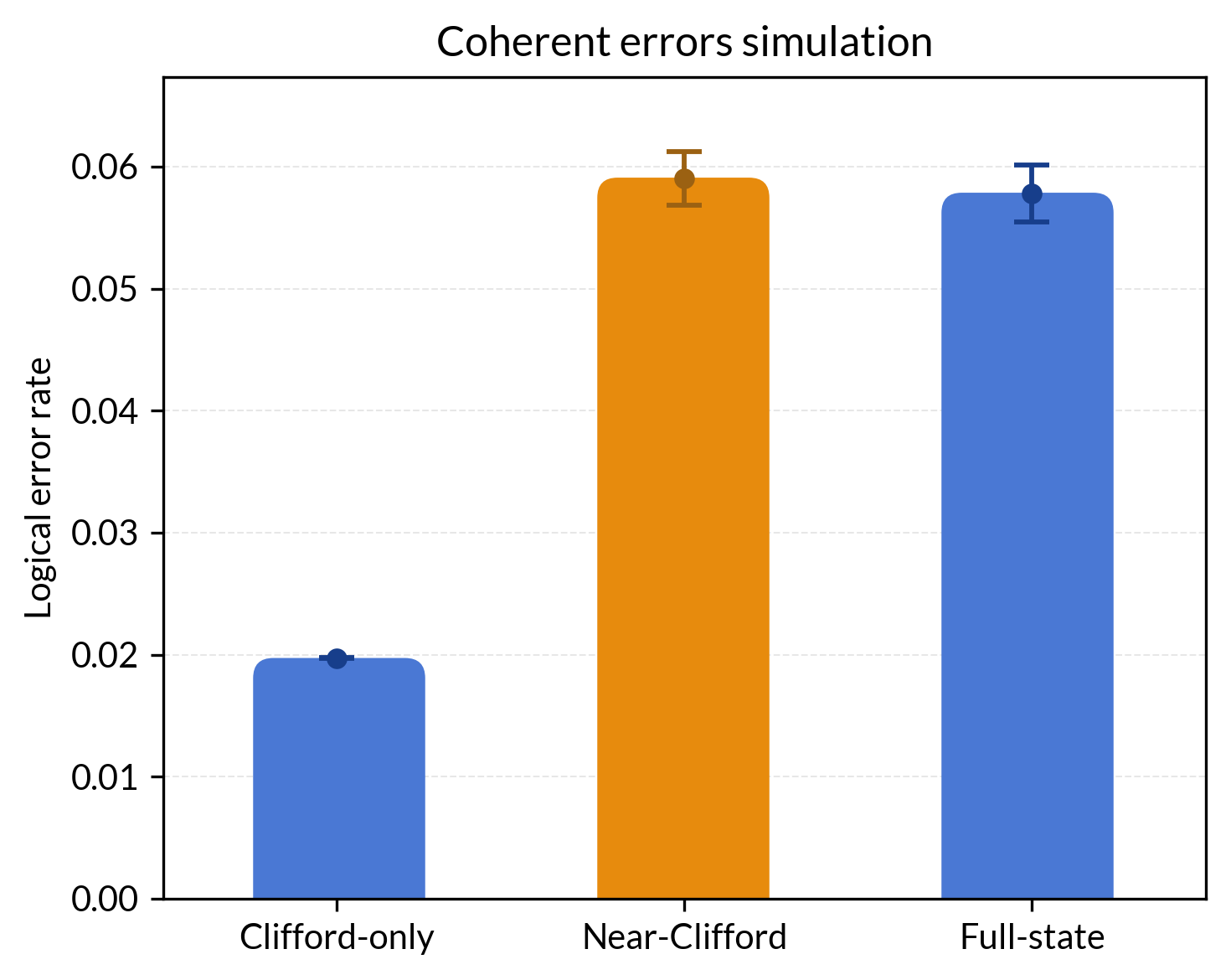Plaquette v2025.7 unlocks modelling of any quantum hardware imperfection
QC Design is excited to announce the release of Plaquette v2025.7, which allows users to define any type of hardware error and, independently, to choose the preferred pipeline to simulate them.
Conventional quantum simulation tools typically trade off simulation speed with simulation accuracy: on the one end, full-state simulators accurately capture the full quantum state of the system, but are inherently slow and limited to modest qubit counts, typically tens of qubits; at the other extreme, stabilizer simulations are restricted to Clifford circuits, they offer speed but support only simple imperfections, namely Pauli errors and erasures. This dichotomy prevents accurate investigation of quantum error correcting code performance and rapid iteration of different quantum architectures, especially when errors involving higher energy levels (e.g., leakage) or when non-Clifford errors (e.g., coherent over-rotations), are present.
Plaquette v2025.7 breaks this restrictive binary by offering an entire spectrum of simulation options, from exact full-state modeling to fast stabilizer simulations and flexible intermediate approximations. This allows Plaquette users to define any quantum hardware imperfection and, at the same time, to define the approximation level used during the simulation.
The central feature of Plaquette v2025.7 is the ability to define and manipulate arbitrary hardware errors, converting these errors among different error descriptions and approximations. As a result, Plaquette can now automatically approximate any user-defined error as Pauli errors via Pauli twirling, but also to include leakage to and from additional non-computational levels, or even perform an exact decomposition as a linear combination of Clifford channels. All these representations can be then simulated by our five simulation backends, implementing Clifford, extended Clifford (XPauli), near-Clifford, and CPU-based or GPU-based full state simulations. These tools allow our users to select the ideal simulation speed and accuracy, in order to iterate over different quantum architectures more efficiently.
This release also more than doubles the number of native gates from less than 50 to over 100 available in Plaquette: this enables the simulation of many more fault tolerant quantum error correcting codes and it improves Plaquette's loss-aware decoding pipeline, by enabling a more precise definition of qubit interactions with lost qubits.
We’ve love for you to try out this new version of Plaquette on your hardware imperfections!


